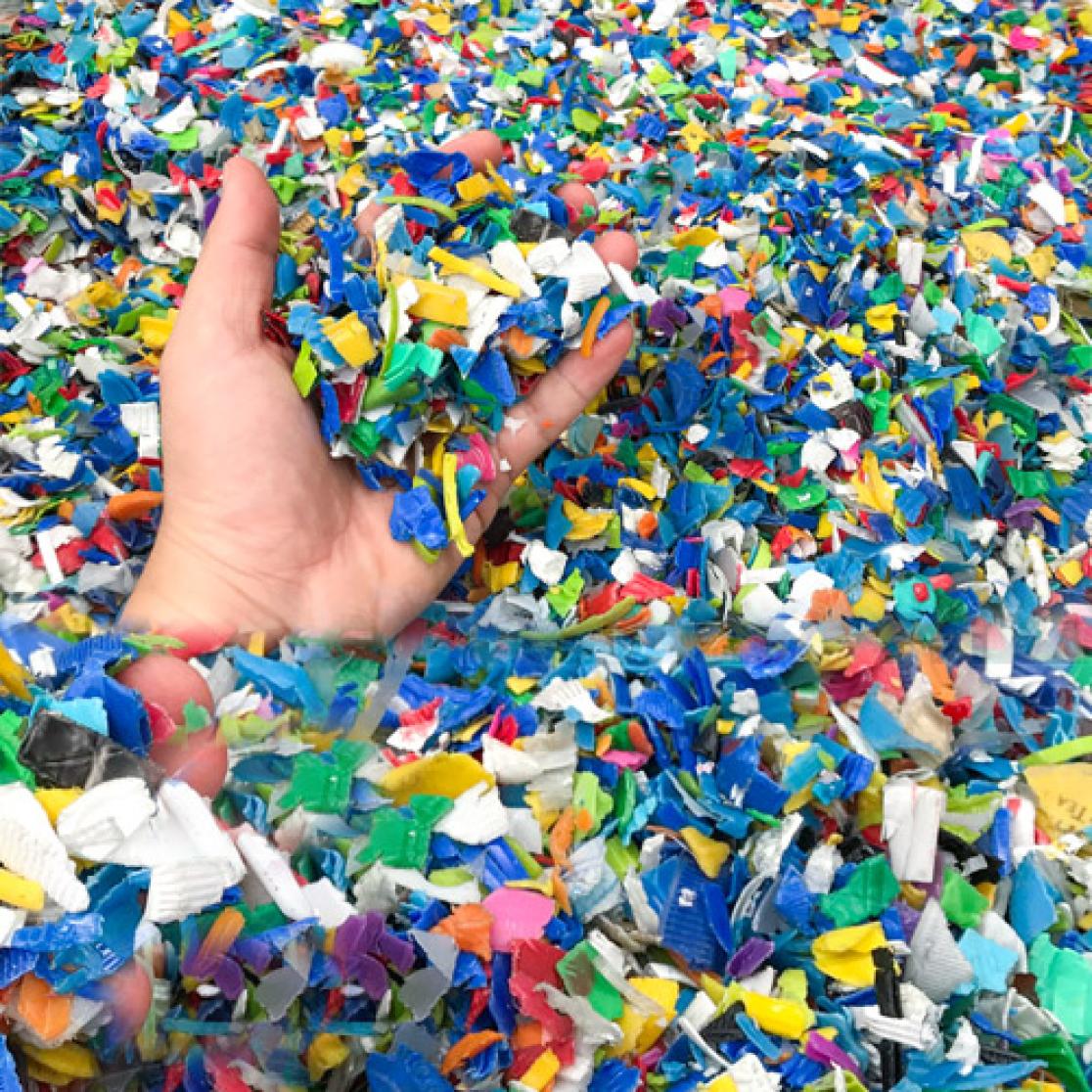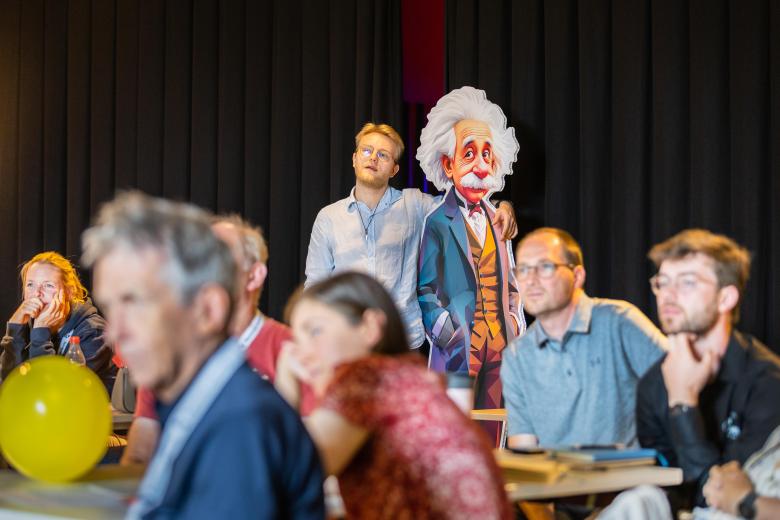In-line monitoring for better quality of recycled plastics
The perfect recycling of plastics from household waste is one step closer, thanks to research into quality monitoring at all stages of the recycling process. The University of Maastricht, the National Test Centre Circular Plastics, and their collaborators have received a government subsidy of over EUR 2 million, which will accelerate their research.
We all collect plastic packaging waste, including tubes, bottles, jars, and films, for recycling. It alludes to a mixture of diverse materials that also contains contaminants such as ink, glue, labels, and, last but not least, remnants of the product in the container. "Even if you wash and separate the waste by type of plastic there are still several percent of contaminants and other types of plastic remaining in the material," says Kim Ragaert, professor of Circular Plastics in the Circular Chemical Engineering research group of the Faculty of Science and Engineering. "From a technical point of view, the perfect recycling of plastic waste is currently virtually impossible."
To monitor the quality of the finished product, recycled plastic, adequate data from all stages of the recycling process is required. These results are based on real-time and in-line monitoring that is integrated into the manufacturing process. The creation of this monitoring system is critical to the Monitoring Quality in Plastic Recycling research (MoQuP-R).
Recycling
Within the project, the National Circular Plastics Test Centre (NCTP) monitors the separation and pre-processing of packaging waste, including washing. Ragaert and her colleagues Rudinei Fiorio, Ali Gooneie, Sin Yong Teng, and Marcel van Eijk use a variety of analysis techniques to measure quality throughout recycling. "This concerns production processes like extrusion, degassing, and melt filtration, in which we monitor the chemical composition of the plastic as well as the fluidity and processability of the melted plastic," Ragaert explains.
Marcel van Eijk, R&D manager at NCTP and university professor at the University of Maastricht, initiated the research. The Rijksdienst voor Ondernemend Nederland, in collaboration with the Nationaal Groeifondsprogramma Circular Plastics NL, has provided a subsidy of approximately 1.9 million euros to MoQuP-R. The total funding for the study is 2.6 million euros, with over 1 million euros allocated to the Maastricht portion of the research. Ragaert says, "We will use the grant to take strong steps to bring analytical knowledge to the recycling process in real time."

In addition to Maastricht University and the National Test Centre Circular Plastics, the following partners participate in MoQuP-R:
- TNO
- Danone
- LyondellBasell
- Graham Packaging
- Verpact
Also read
-
Céline Nicole strengthens collaboration between Maastricht University and HAS green academy in high-tech horticulture
UM and HAS collaboration takes shape: Céline Nicole bridges fundamental and applied research in high-tech horticulture.

-
ETpathfinder Smart Skills Lab shares Einstein Telescope knowledge with businesses
Research into the Einstein Telescope is generating valuable technological expertise. The new ETpathfinder Smart Skills Lab at Maastricht University aims to spread this new knowledge to small and medium-sized enterprises.

-
MaGIC summer school: physics teachers dive deep into gravitational waves
Last week saw the very first edition of the MaGIC Summer School take place in Maastricht. The event brought together secondary school physics teachers from around the world to learn more about gravitational waves and the Einstein Telescope.
